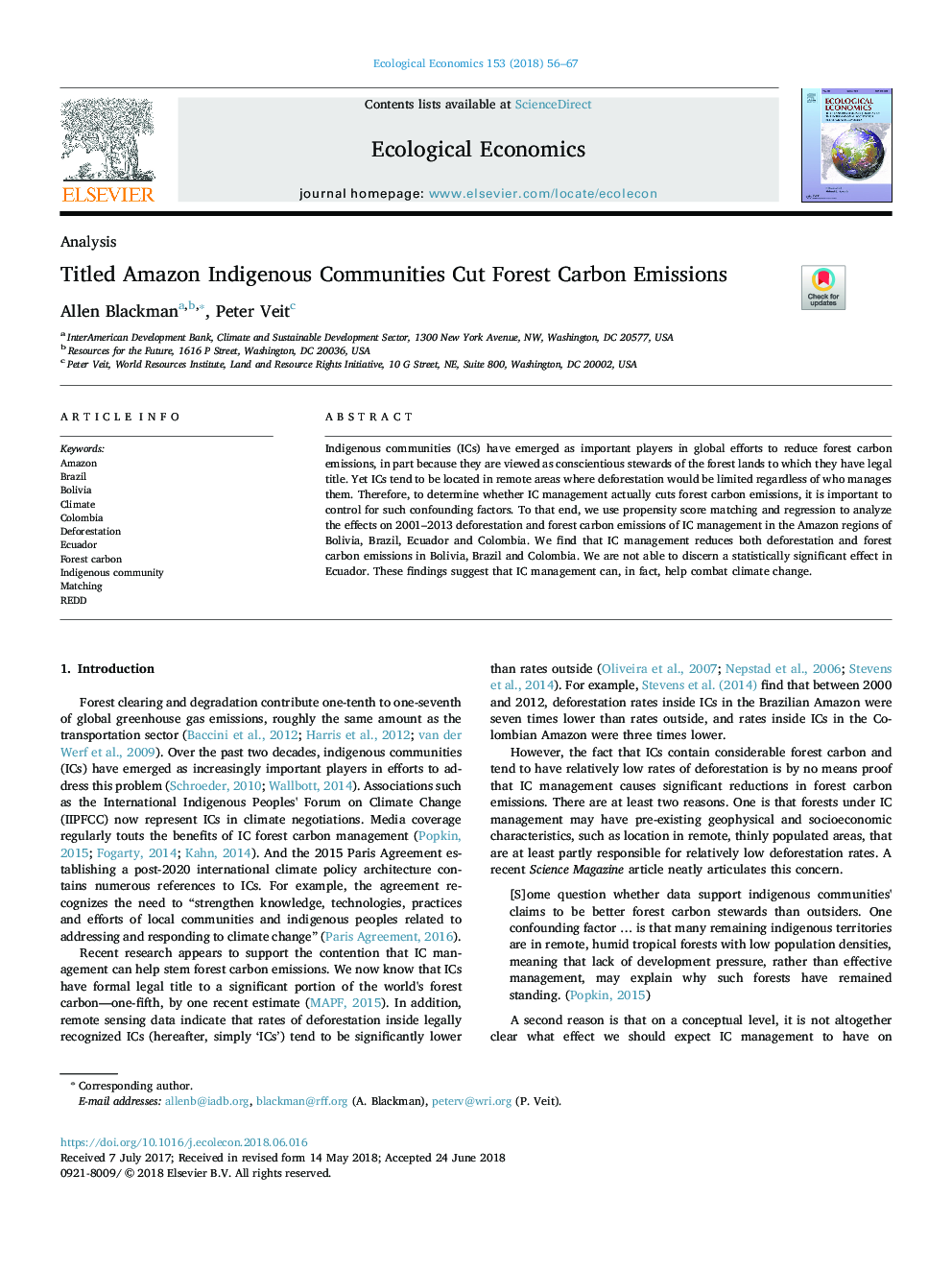| Article ID | Journal | Published Year | Pages | File Type |
|---|---|---|---|---|
| 7343709 | Ecological Economics | 2018 | 12 Pages |
Abstract
Indigenous communities (ICs) have emerged as important players in global efforts to reduce forest carbon emissions, in part because they are viewed as conscientious stewards of the forest lands to which they have legal title. Yet ICs tend to be located in remote areas where deforestation would be limited regardless of who manages them. Therefore, to determine whether IC management actually cuts forest carbon emissions, it is important to control for such confounding factors. To that end, we use propensity score matching and regression to analyze the effects on 2001-2013 deforestation and forest carbon emissions of IC management in the Amazon regions of Bolivia, Brazil, Ecuador and Colombia. We find that IC management reduces both deforestation and forest carbon emissions in Bolivia, Brazil and Colombia. We are not able to discern a statistically significant effect in Ecuador. These findings suggest that IC management can, in fact, help combat climate change.
Keywords
Related Topics
Life Sciences
Agricultural and Biological Sciences
Ecology, Evolution, Behavior and Systematics
Authors
Allen Blackman, Peter Veit,
